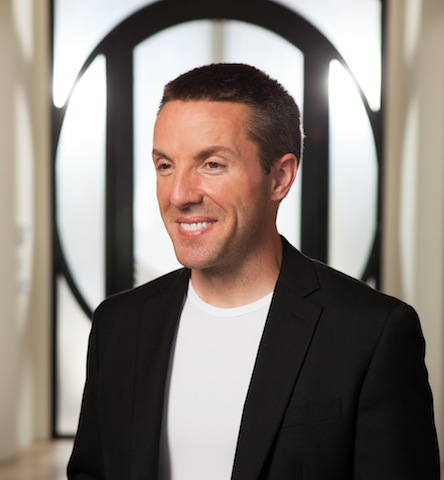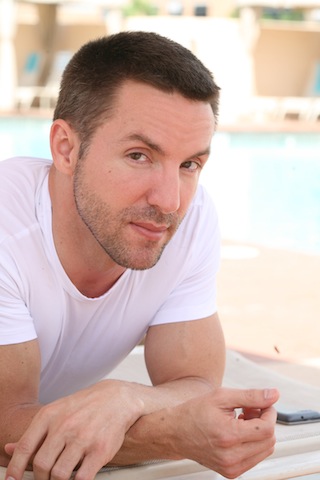
Valley attorney Morris Callaman is a person that represents more than just a great story of ambition and drive. Out of darkness, the successful concierge attorney rose from the cracks of an abusive household and homelessness, to the path of immense and deserving success.
DP: I read part of your story and think it's one of success, would that be an accurate description?
MC: I think so…I feel like I'm going to get better, and have so much more potential. But what I'm hopeful for is that we're conveying a message to people to not give up. Continue to think creatively, persistently--creatively, and figure out how to keep going.
DP: How did you stay motivated and going, after experiencing so much adversity at such a young age?
MC: Well, there's a two- part answer: The one that people are really interested in hearing is that --I just really wanted it. I really wanted to continue…I had a misplace pain in the things that I had gone through and some of the decisions that I made as an adolescent, and I wanted to be a good man, I wanted to be good enough. So i just kept trying.
The more accurate, answer—, which is not a very good copy— I have to believe that somewhere in my life, when I was very young, one or two years old, somebody must have said to me, "Hey, you can do it, just try." I think I have some pre-frontal lobe development memory to just give it a shot.
DP: In life, sometimes you're not sure if you can, and trying is the hardest part. So if you have this mentality, "Try, give it a shot" it's a lot easier.
MC: I have some kind of fearish optimism, in that I deeply believe that whatever happens, is the best thing that could of happened. I spent a lot of time trying to figure that out, and get underneath it, and just concluded that one can spend a lifetime trying to determine their version of reality is legitimate. But instead, choose that version of reality. Everything that has happened, has led to a greater outcome for me. Because it gave me an idea of how to apply myself, so I can be certain it turned into a greater outcome. It's keep me going a lot too, without feeling a sense of accumulated baggage or regret.

DP: So where does your story begin?
MC: I was born to parents to who didn't really want me, and attachment disorders and abandonment issues--which we don't think about until we become parents ourselves, I guess. So I spend the first year and half or so, with my birth parents and they break up, and for a short while, I end up living in a commune in New Mexico with group parenting. I wind up getting adopted, and spending three through eight in an abusive household; it was pretty intense. This couple, makes a living in working with drugs. They break up and split and I wind up couch- surfing from boyfriend to girlfriend for the next five years. After this, I run away and end up getting at a construction site picking up trash--it was a good job, I was getting five bucks an hour, cash. So that's $10,000 a year, so for a young man, 14-years- old, I felt like all my problems were completely solved. $10,000 a year!
I ended up learning some trades--the masons picked me up and I learn how to mix mortar, the carpenters picked me up and I learn how to swing a hammer, and I do that for a few years. Some electricians pick me up--I'm trying to apply myself to prepare for a skill trade. The outfit I'm wearing winds up getting a job helping out with the electric work at the poster office, so I end up joining the union as an apprentice.
It's been a few years, and I'm kinda stalling out, and I realize I'd like to do something else. I'd like to work indoors for one thing, it's hot out here. So I go down to Glendale Community College, and tell them this story, and say here's the deal, I'd like to go. And they ask me about high school and I tell them, I finished eighth-grade and ran away. So I get a GED. I took classes at GCC, and I took so many classes that in 1990, I had the third-highest number of credits that GCC ever had. I studied everything.
DP: Is that pure curiosity and hunger to learn and dive in?
MC: Yeah. I studied marketing, accounting, religion, and settled in engineering because I figured I needed to make money and earn a living. Then transferred to ASU. I always wanted to continue to apply myself, and I still do. I'm in the process of applying for the PHD program in sustainability, I just have a craving to continue to grow.
DP: That's an incredible and unique thing. It's refreshing to have an a curiosity to want to continue to learn and expand and position yourself on a path to led to something else.
MC: Yeah. I always felt that, perhaps that I was not worthy of being alive. I almost gave up a few times, until I thought, "Well I'm here, I might as well do something." And I got this sense that I really wanted to make it count, I wanted to make the pain I had felt worth something. The best thing way I could think was to make it worth something was and to try to make other people's lives better. It seems like my life has been figuring out how I can apply myself in order to help others.
I want humans to treat each other more humanely. That's what I do today., I try to solve problems and do so in a way that it gets to this chewy center in a way.
DP: Is that how the term "concierge attorney" came about?
MC: I was trying to figure out how I could convey to people what I do because it's not that I really provide legal advice. It's more like I provide whatever it is I think I know about the situation. It can be strategic advice, business advice, or life experience advice. I'm usually looking to see what's really happening, and what's this person, that I'm working with seemingly need. A lot of people don't take the time and say, "Here's a set of documents and sign, here." I think of myself like a concierge physician— the old kind that makes house calls. I really want to try to seek you out--what's going on, what can I provide, let's figure out a plan and spend an hour and say what we need is this person who does this and we'll make those calls and set up meetings.
DP: Is that the type of ideal that your firm embodies?
MC: In a sense that I want to give people the best solution. If we need something like that then it's exactly an ideal. But there are times where I'm the right person because it's a question of if I'm the right person to remain engaged.
DP: When did the law interest begin?
MC: I took a job as an engineer and went from an hourly computer programer to a salary engineer. I did that for awhile and then thought, I need an MBA so I did ASU's executive MBA program. It was after that, when I thought what I really need is a law degree and took a sabbatical for nine months and spent it reading cases. Then I thought, I wanted to go in the practice of law to help people. I'm a shield not a sword.
DP: Do you think the need to help others, comes from your childhood?
MC: Yeah, because I remember when I suffered, whether I was cold, hungry, or lonely. And then I remember distinct moments where someone would come along for no reason and they'd give me answer or opportunity. Like this forklift driver, named Ross, who basically got me a job and took really good care of me. The juxtaposition, the contrast of feeling like I'm about to be a be a victim of society and then turning out to be a product of society... I want to do that for other people. It's the most gratifying experience that I've encountered.
DP: It makes everything worth it.
MC: Yeah, it makes it worth it. It makes the hardship worth it. I wake up and think about it and it's the answer is always the same thing: I want to try to make people lives better.
My dream job is for another 25 years, to have applied myself enough that I will be qualified to be a special consultant to work on a large problem for the last of my career.
DP: Do you think about your next step often?
MC: Yeah, I've been thinking about that for almost 20 years now.
DP: Is there one issue that sticks out in your psyche in terms of problems or things that need more attention?
MC: I'd really like a shot at working on Middle Asian problems. There are huge problems in the world. The populations in India and China are enormous problems, and yet we're focused in the Middle East. I feel like once we get that solved, we can look at other significant problems that are affecting many, many more lives.
DP: When did the law career launch?
MC: I finished my law degree in Tokyo. To this day, I have about two and a half million flyer miles, which is a lot. About every month I was going somewhere. [Travel] was wonderful, I went to every place on the planet I really wanted to go.
It was one of those situations like the expression, "Wherever you go, you take yourself with you" so I still spent a lot of time in hotels thawing myself out, looking out at the window on the weekends. But like everything it was incremental and I kept applying myself, and trying to feel better and think better and solve progressively more difficult problems. One day about six years of doing this, got up and said I didn't want to do this anymore and I quit. Then it was back to Phoenix.
DP: Was it like a restart button?
MC: It was the best of times and worst of times. I walk into a meeting at the Arizona Biltmore and no one gave a fig who I was. I just came out of a world where people were interested in what I had to say. It was a significant identity loss, so I lay on the carpet for awhile and watch the clouds and what I can do. I can do the same thing I was doing, but do it here, and I applied for the bar.
MC: I was a principal guy. It's the top of the decision process. You decide who your clients are, you decide the services and write proposals. You're basically running a business within a business. I realized that I can do that here, but I could do it on my own and it could be mine.